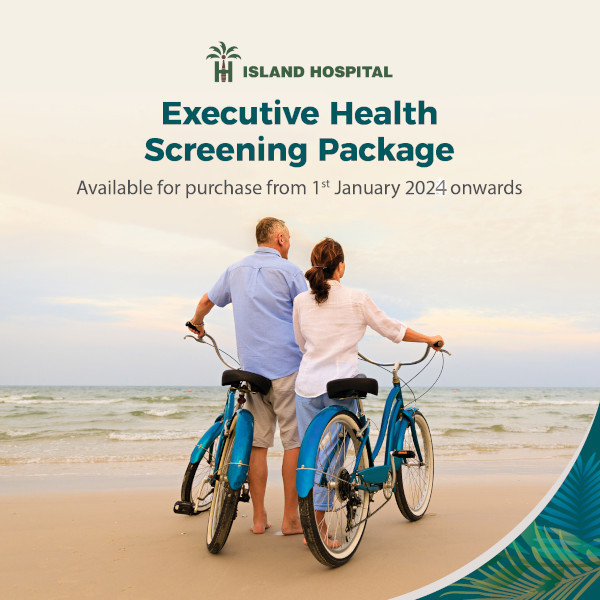
31 Mar Cardiology: Frequently Asked Questions
Cardiology: Frequently Asked Questions
By Island Hospital | March 31, 2025 6:51:41 PM
Medical Reviewer: Medical Officer
Cardiology is a medical specialty that focuses on diagnosing, treating, and preventing diseases related to the heart and blood vessels.
Whether you are experiencing symptoms of heart disease or seeking information on cardiac treatments, understanding cardiology can help you make informed healthcare decisions.
Here are some frequently asked questions about cardiology, heart attacks, congestive heart failure, and cardiac surgery.
General Cardiac FAQs
What is cardiology?
Cardiology is a branch of medicine that deals with disorders of the heart and blood vessels. Cardiologists diagnose and treat conditions such as coronary artery disease, heart rhythm disorders, and heart failure.
What are the common symptoms of heart disease?
Common symptoms include chest pain, shortness of breath, fatigue, dizziness, and leg swelling. If you experience any of these symptoms, it is important to consult a cardiologist.
How can I maintain heart health?
Maintaining a healthy diet, exercising regularly, managing stress, avoiding smoking, and controlling blood pressure and cholesterol levels are key to heart health. Besides, it’s also important to find out your risk of heart disease and get regular health screenings.
Learn more in this article on how to prevent heart disease.
What are the risk factors for heart disease?
Risk factors include:
- High blood pressure
- High cholesterol
- Diabetes
- Smoking
- Obesity
- Unhealthy diet
- Stress
- A sedentary lifestyle
- A family history of heart disease
How often should I see a cardiologist?
If you have risk factors for heart disease, a check-up with a cardiologist every year is advisable. Otherwise, routine health screenings with your primary care physician can help determine when a cardiology consultation is needed.
Looking to do a full-body checkup? Check out our tailored health screening packages.
Can heart disease be reversed?
While some heart conditions cannot be completely reversed, lifestyle changes, medications, and medical treatments can significantly improve heart health and reduce disease progression.
Related Articles: Heart Health: Frequently Asked Questions
FAQs About Heart Attack
What is a heart attack?
A heart attack occurs when blood flow to a part of the heart is blocked, often due to a buildup of plaque in the arteries. This can cause permanent damage to the heart muscle.
What are the warning signs of a heart attack?
Common signs include:
- Chest pain or discomfort
- Pain in the arms, neck, jaw, or back
- Shortness of breath
- Nausea
- Cold sweats
Symptoms can vary between individuals, especially in women.
How is a heart attack treated?
Immediate treatment includes medications like aspirin, clot-busting drugs, and emergency procedures like angioplasty or coronary artery bypass surgery.
How can I prevent a heart attack?
Preventative measures include maintaining a healthy diet, regular exercise, quitting smoking, managing stress, and controlling blood pressure and cholesterol levels.
What should I do if I think I’m having a heart attack?
Call emergency services immediately. Do not attempt to drive yourself to the hospital. Chewing an aspirin may help while waiting for medical assistance.
Can a heart attack be survived?
Yes, with prompt medical treatment, many people survive heart attacks and recover well. Long-term care, including medications and lifestyle changes, is essential for recovery.
FAQs About Congestive Heart Failure
What is congestive heart failure?
Congestive heart failure (CHF) is a condition in which the heart cannot pump blood efficiently, leading to fluid buildup in the lungs and other parts of the body.
What are the symptoms of congestive heart failure?
Symptoms include:
- Shortness of breath
- Fatigue
- Swollen legs or ankles
- Rapid heartbeat
- Persistent coughing or wheezing
What causes congestive heart failure?
Common causes include coronary artery disease, high blood pressure, diabetes, and previous heart attacks.
How is congestive heart failure treated?
Treatment includes lifestyle modifications, medications, and, in severe cases, surgical procedures like a heart transplant or the implantation of a defibrillator.
Can congestive heart failure be cured?
While CHF is a chronic condition, it can be managed effectively with medical treatments, lifestyle changes, and ongoing monitoring.
What lifestyle changes help manage CHF?
A low-sodium diet, regular physical activity, weight management, and avoiding alcohol and smoking can help improve symptoms and quality of life.
FAQs About Cardiac Surgery
What is cardiac surgery?
Cardiac surgery refers to surgical procedures performed on the heart, including bypass surgery, valve replacement, and heart transplants.
When is cardiac surgery needed?
Cardiac surgery is needed when medications and other treatments are not effective in managing heart disease or when there is severe artery blockage or valve dysfunction.
What is coronary artery bypass graft (CABG) surgery?
CABG is a procedure that improves blood flow to the heart by using blood vessels from other parts of the body to bypass blocked arteries.
What are the risks of cardiac surgery?
Risks include infection, bleeding, stroke, and complications from anesthesia. However, advances in surgical techniques have significantly improved outcomes.
What is the recovery time after cardiac surgery?
Recovery varies but generally takes several weeks to months. Patients are encouraged to follow rehabilitation programs for better recovery.
How can I prepare for cardiac surgery?
Pre-surgery preparation includes stopping certain medications, adjusting lifestyle habits, and following dietary and activity guidelines provided by your doctor.
FAQs About Appointments at Island Hospital
Do I need a referral to see the doctors?
In most cases, a referral is not required, and you may consult a Cardiologist directly. However, for certain conditions or specialist consultations, a referral from your primary care physician may be recommended.
For any enquiries, feel free to contact us.
What types of cardiac procedures are offered?
Procedures offered and conditions treated at Island Hospital include (but are not limited to) the following:
- Trans-thoracic and trans-oesophageal echocardiography
- Temporary and permanent pacemaker implantation
- Pacemaker: Single and Dual Chamber Pacemaker Implantation
- Left and right heart catheterisation
- Intravascular Ultrasound (IVUS) guided coronary intervention
- Left main coronary intervention
- Percutaneous Coronary Intervention (PCI) including stenting, PCI for bifurcation lesions, PCI for aorto-coronary grafts, and the use of Absorb Bioresorbable Vascular Scaffold
- Echocardiography
- Cardiac CT Angiogram
- Heart diseases
- Diagnostic studies: Coronary angiogram, graft study, right and left heart study
- Coronary interventions: PTCA and stent implantation, rotablation (rotational atherectomy)
- Valve interventions: PTMC (Percutaneous Transvenous Mitral Commissurotomy), aortic and pulmonary balloon valvuloplasty
What types of insurance are accepted?
We accept insurance from the following providers:

Before booking an appointment, do contact your insurance company to confirm the extent of your policy’s coverage. Please ensure that all insurance details provided are completed before submitting to the hospital.
For any enquiries, don’t hesitate to contact us.
What payment methods are accepted?
We accept the following payment methods:

Before you register at the Admission Counter, our staff will need to know your mode of payment – self-pay, corporate guarantee letter, or via insurance.
For any enquiries, don’t hesitate to contact us.
How do I book an appointment?
You can schedule your appointment by filling out our contact form, calling +604 238 3198/3199, or emailing appt@islandhospital.com.
Experience Unparalleled Heart Care at Island Hospital
At Island Hospital, we understand the importance of comprehensive heart care.
Our Cardiology Department and Heart Centre are equipped with advanced technology and staffed by a dedicated team of professional cardiologists, nurses, and support staff.
Our commitment to excellence has earned us local and worldwide recognition:
- A finalist for Malaysia’s Flagship Medical Tourism Hospital Programme
- A place on Newsweek’s lists of World’s Best Hospitals 2024
- A place Best Specialized Hospitals Asia Pacific 2024 (Cardiology)
Hence, whether you are seeking preventive care, diagnostic services, or advanced treatments for heart-related conditions, Island Hospital is your trusted partner in achieving optimal cardiovascular health.
Don’t Wait Until It’s Too Late – Get a Screening That Covers All The Bases

We’re offering our comprehensive Executive Health Screening Package at only RM760 – giving you a complete head-to-toe health assessment for peace of mind.
Our package features vital health screenings, including Cardiovascular Assessment, Full Blood Picture, Radiological Screening, Diabetes Screening, Kidney Function Test, and much more.
What’s Included in Your Screening Experience:
✔ Physical examination
✔ Complete medical report
✔ Consultation by Health Screening Physician/Specialist
✔ Choice of light refreshments
✔ Exclusive Island Hospital woven bag






